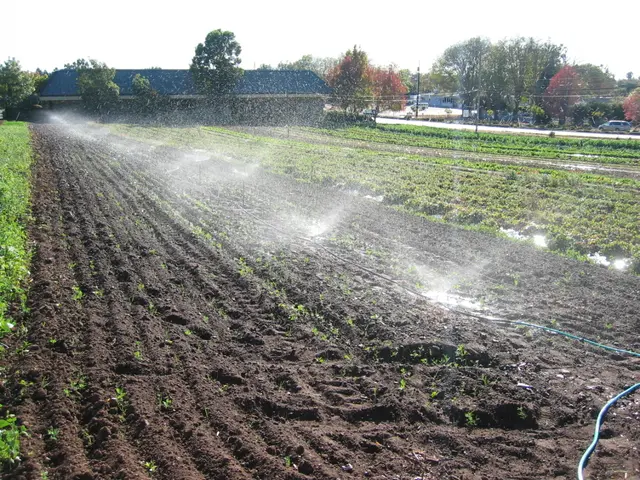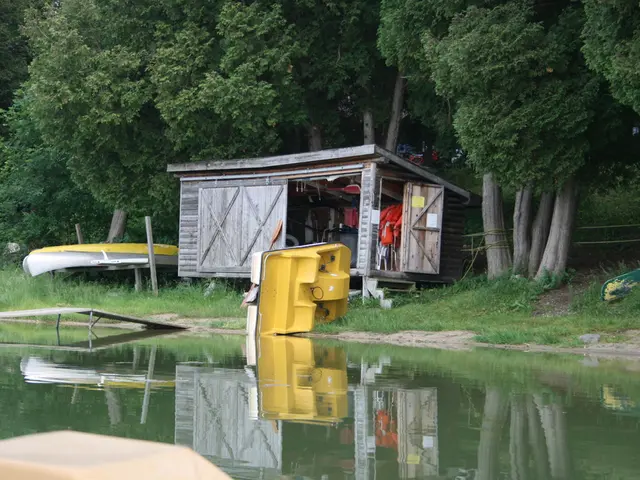European Union advocates for expedited transition away from Russian gas, inspired by Trump's urging
The European Union (EU) has announced a new sanctions package targeting Moscow due to the 2022 invasion of Ukraine. As part of this package, the EU aims to phase out liquefied natural gas (LNG) imports from Russia by the end of 2026, one year earlier than previously planned.
Brussels' decision comes in response to pressure from the US to end fossil fuel imports from Russia and to increase pressure on Russia amid the ongoing conflict over Ukraine. The EU seeks to reduce its reliance on Russian energy sources as a geopolitical sanction measure.
Despite a push to end decades of European dependency, Russia still supplies a significant portion of the EU's gas. In 2024, 32 billion cubic metres of gas entered Europe via the TurkStream pipeline, and 20 billion cubic metres through LNG shipments. However, Moscow's share has decreased significantly from 45% before the war to 19% in 2024.
The proposed ban on Russian gas imports is set to take effect by January 2027. The EU has already banned most Russian oil under previous rounds of sanctions. Hungary and Slovakia are the only EU countries still buying Russian oil.
The European Commission aims to phase out LNG purchases from Russia. An increase in purchases of LNG transported by sea has partially offset a sharp fall in pipeline imports. The EU's proposal is aimed at cutting Russia's revenues from fossil fuel sales.
EU foreign policy chief Kaja Kallas stated that Brussels is making sure Russia pays the price for continuing the war. Kallas wrote that Moscow thinks it can keep its war going. The EU seeks to coax President Donald Trump to take a tougher stance on Moscow over the Ukraine war.
President Donald Trump has expressed readiness to increase pressure on Russian President Vladimir Putin, if allies stop buying Russian oil and hit China with tariffs. The sanctions also aim to hit firms, banks, and traders in China, India, and other third countries accused of helping Russia circumvent sanctions.
The new sanctions package is part of a broader effort by the EU to weaken Russia's economy and to support Ukraine in its struggle against Russian aggression. The EU remains committed to a peaceful resolution of the conflict and to the territorial integrity and sovereignty of Ukraine.








